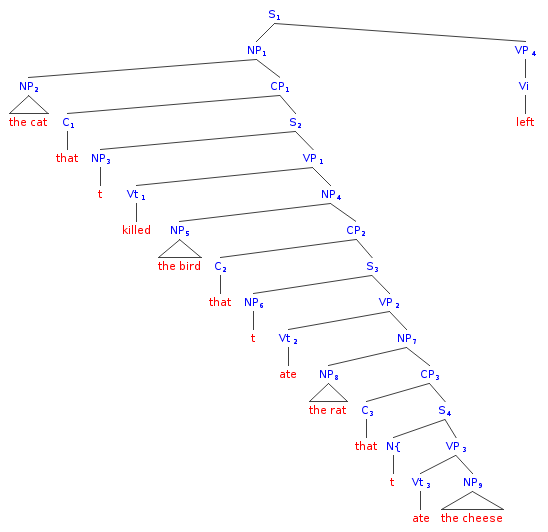Please join us Monday, September 26, at 4:30 p.m. in the Strange Lounge of Main Hall for the second installment of the Strange Philosophy Thing of the 22-23 academic year.
The author of this article considers a couple of reasons one might think that linguistics and/or universal grammar isn’t a science. One concerns falsifiability. Karl Popper famously argued that a necessary condition for a hypothesis to be scientific is that it is falsifiable, i.e., it must generate predictions that can be refuted by observation. The challenge for linguistics concerning falsifiability is particularly acute for Noam Chomsky’s universal grammar, according to which human beings have a common innate linguistic capacity which guarantees that all human languages will share certain traits, most notably, recursion, i.e., the ability to form arbitrarily long expressions by repeatedly applying one or more rules of grammar.

Chomsky’s view faces a challenge due to the existence of languages like Pirahã, which do not appear to feature recursion. The author notes that, in response to being questioned about the falsifiability of universal grammar, Chomsky himself has claimed that universal grammar shouldn’t be understood as a scientific hypothesis but instead as a field of study, like physics, with the claim of innate universality being a guiding assumption, akin perhaps to the presumption in physics that physical objects exist. So, if asked about the implications a language like Pirahã has for universal grammar, rather than trying to argue that it does in fact contain recursion, or to explain it away as irrelevant data, Chomsky would presumably reject the assumption implicit in the question that universal grammar is a scientific hypothesis.
The author of the article points out another reason one might think that linguistics isn’t a science: the peculiarity of the data from which linguists draw many of their conclusions. In particular, the sorts of sentences linguists use to draw certain conclusions are heavily contrived. In many cases, neither the grammatically incorrect nor grammatically correct sentences relied upon are sentences one would hear in normal discourse. The author makes connections between the contrivance of these sentences and idealization in other scientific domains we might be familiar with, e.g., in the formulation of various laws, like v = 9.8m/s2 × d, in which we abstract away from friction produced by air resistance.
The author’s discussion of these issues raises a few clusters of questions:
1. Must a science be falsifiable? Is universal grammar falsifiable, given the approach notable adherents use to deal with Pirahã? Is linguistics in general falsifiable?
2. Should universal grammar be understood as a field of study rather than a scientific hypothesis? Should it be taken as a methodological assumption or does it need to be confirmed empirically? If the former, then what should one make of the existence of Pirahã?
3. What is the role of idealization in science? Does the respect in which idealization figures into linguistic data, as the author describes, the same (or at least relevantly similar to the) way in which it figures in elsewhere, e.g., in the abstraction away from friction in, for example, v = 9.8m/s2 × d?
See you on Monday for discussion of these questions and refreshments!
